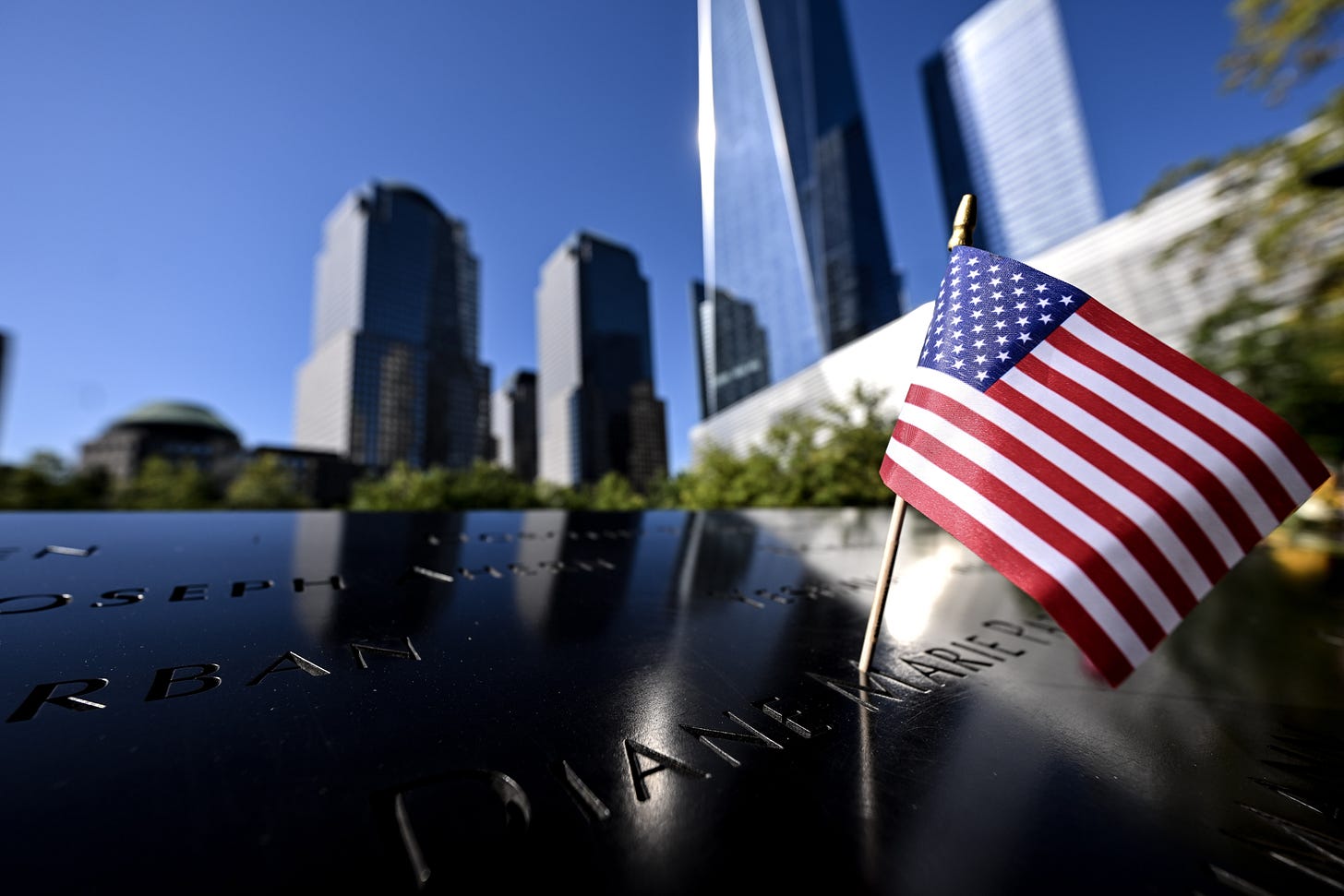Saudi Arabia can't dismiss lawsuit by 9/11 families
The Kingdom claims their employees were just an imam and accountant, but a judge found a "reasonable inference" they were paid to assist the hijackers.

Nearly a quarter century after the 9/11 attacks, families of the victims may take Saudi Arabia to trial in federal court in lower Manhattan, close to the World Trade Center.
All Rise News will be on the case.
In a major victory for 9/11 families, a federal judge refused to dismiss a lawsuit accusing Saudi Arabia of employing two men to assist the hijackers in the attacks on the World Trade Center and the Pentagon.
In a 45-page order, U.S. District Judge George Daniels found recently surfaced evidence about the roles played by two men linked to the Saudi government — Omar al-Bayoumi and Fahad al-Thumairy — persuasive enough to let 9/11 families press claims that Saudi Arabia employed the men to help at least two of the hijackers.
“Although [the Kingdom of Saudi Arabia] attempts to offer seemingly innocent explanations or context, they are either self-contradictory or not strong enough to overcome the inference that [the Kingdom of Saudi Arabia] had employed Bayoumi and Thumairy to assist the hijackers,” Daniels wrote in his ruling.
The 9/11 families’ firm, Kreindler & Kreindler, celebrated the decision.
“It has been nearly 25 years since the largest terrorist attack in United States history, which took the lives of nearly 3,000 innocent people,” the firm wrote in a statement. “Today’s decision by the Honorable George B. Daniels to deny the Kingdom of Saudi Arabia’s motion to dismiss ensures that the plaintiffs may continue their long pursuit of truth and justice.”
“Highly connected to his employment”
For more than two decades, Saudi Arabia has tried to beat civil litigation seeking to hold them liable for the terrorist attacks. In 2015, Daniels dismissed the claims against the country under the Foreign Sovereign Immunities Act. Congress amended that law a year later, giving the 9/11 families an opportunity to pierce the kingdom’s legal protection and allowing them to overturn that ruling on appeal.
Once the case returned to his court, Judge Daniels sent the matter to his magistrate to oversee jurisdictional discovery, and the families uncovered a video of Bayoumi videotaping himself touring landmarks in Washington, D.C., cryptically referring to an unspecified “plan” in front of the U.S. Capitol. The families believe that the building was the intended target of the plane that crashed near Shanksville, Penn.
The 9/11 families’ legal team also found Bayoumi’s drawing of an airplane with a mathematical equation related to its descent.
CBS’s 60 Minutes tied together the evidence uncovered during discovery in a recent bombshell investigation.
Judge Daniels doubted Bayoumi’s attempt to explain the plane drawing and the mathematical equation as related to his then-studies in the United States.
“Most tellingly, the drawing of an airplane with equations related to the height and distance of a plane's flight path, for which he could not come up with any reasonable explanation, facially connects Bayoumi with knowledge of the 9/11 attacks,” his ruling states.
Video also captured 9/11 hijackers Nawaf al Hazmi and Khalid al Mihdhar at a social gathering at Bayoumi’s apartment, and evidence showed that Bayoumi helped those men get an apartment inside the complex in San Diego where he had been living.
Saudi Arabia gave Bayoumi a “significant increase” in his salary during the time he helped the hijackers get settled into San Diego.
“The time, place, and circumstances for Bayoumi's assistance to the hijackers were highly connected to his employment,” the ruling states.
“Frequent interactions with the hijackers”
As recounted in the ruling, Saudi Arabia officially employed Bayoumi as an accountant and Thumairy as an imam at the King Fahad Mosque in Los Angeles, where the hijackers went “immediately” upon visiting that city.
“When viewed as a whole, the total evidence creates a reasonable inference that their employment was more than what their official job titles suggest,” the order states, noting Bayoumi’s “frequent interactions with the hijackers” from January to May 2000.
The Saudi government denied directing Bayoumi or Thumairy to assist the hijackers.
“However, the Court finds this assertion lacking force in comparison to multiple pieces of circumstantial evidence creating the reasonable inference that Bayoumi and Thumairy were coordinating with the Saudi government when providing assistance to the hijackers,” the order states. “For example, there were several phone calls made between Bayoumi and Thumairy, between Bayoumi and the Saudi Embassy, and between Bayoumi and the Saudi Consulate during the relevant time period.”
Attorneys for the Saudi government did not immediately respond to an email requesting comment.
“Plaintiffs have provided evidence that creates the overall impression that Bayoumi and Thumairy were not just an accountant or an imam as they claim, and their employment had some connection with assisting the hijackers,” the order states. “They were in direct communication with [Kingdom of Saudi Arabia] officials during their relevant activities. Therefore, by assisting and providing support to the hijackers, they acted within the scope of their employment.”
The judge emphasized that his findings were preliminary, and the scope of Bayoumi and Thumairy’s employment would arise again at trial. Attorneys for the families said the ruling ensured that “critical issues” would be “fully examined at trial,” and “all responsible parties for this act of terrorism to be held accountable.”
Read the order in full here.



Phenomenal reporting, Adam!
Adam you are on the most important cases. Every time I hear Lutnick,I’m reminded of 9/11. Bravo